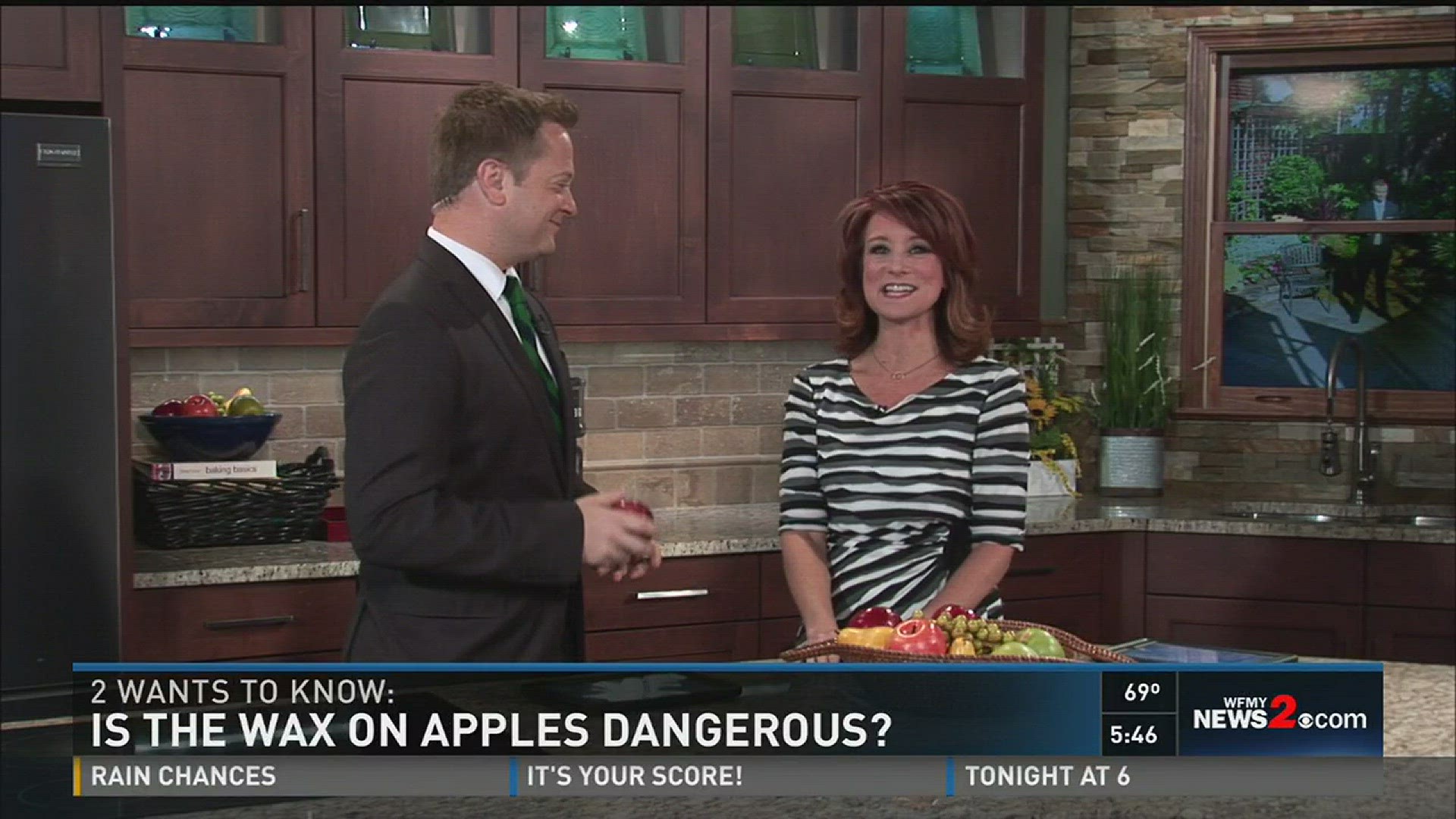Greensboro, NC -- We've all heard that saying, "an apple a day keeps the doctor away."
Apples are supposed to be one of the healthiest fruits on the market but are they also dangerous for you?
Certain videos popping up online would have you believing they are not only dangerous, they could cause cancer.
All you have to do is type "apple" and "wax" into the YouTube search bar and hundreds of search results will load.
The people in the video pour boiling hot water on apples, wait a few minutes and you'll see the apple appears covered in wax. The narrators then go on to make claims about the dangers of eating the wax-covered apples.
What’s true is that apples are in fact covered in wax.
But there isn’t enough research to conclude the wax on the fruit is dangerous.
“There’s a natural wax that apples produce, really to protect the apple itself from moisture-loss,” said Ben Chapman, an associate professor and food safety specialist at North Carolina State University.
According to Chapman and agriculture experts at the Food and Drug Administration, the wax is the apple's natural way of protecting itself from mold, germs and bruises.
The natural wax also makes the apple shiny and keeps germs from getting inside.
“If you're seeing some wax on many fruits and vegetables, it may be naturally occurring or it may be something that's added,” Chapman said.
It’s no secret Apple growers might even add more wax to the apple’s natural wax depending on the variety of the apples, how old the apple is before harvest and storage conditions.
“It’s a fully regulated food additive,” Chapman explains.
And it’s also perfectly safe according to the Food and Drug administration.
The food-grade wax is made from several products including vegetable-, petroleum-, beeswax-, or shellac wax or resin.
And it usually takes a drop or two on the apple to do the job.
“Like with anything, too much of something can become a problem that's why we have regulations in place,” Chapman said.
And part of that FDA regulation means produce shippers and supermarkets
are required by law to let you know if your apple has been coated in food-grade wax.
If you're concerned, you can watch for the labels, or just stop by a local farm and pick one right from the tree without the added wax.
Again, food specialists, researchers, as well as the FDA all say the added wax on apples is perfectly safe.
Many other fruits like plums and pears produce a natural wax, too.
SOURCES:
--
Stay connected 24/7 via WFMY News 2
Get the WFMY News 2 App and the WFMY News 2 Weather App free in the Apple store.
For News Tips: news@wfmy.com or 336-379-9316
2 Wants To Know: 336-379-5606 or 2wtk@wfmy.com
Pictures and Videos: myphotos@wfmy.com

